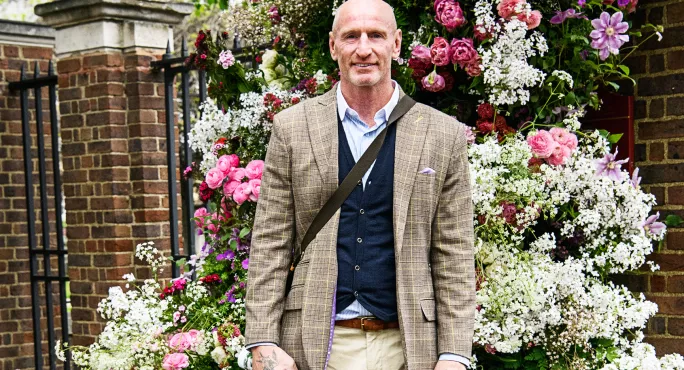Heads challenged to show alternatives to toxic male role models

Schools should actively challenge the notion of “toxic masculinity” by sharing stories of positive male role models with students and encouraging students to come up with their own models of masculinity, Scottish secondary heads have been told.
Mike Nicholson, a teacher who founded the Progressive Masculinity organisation to promote healthy ideas of what it is to be a man, warned that denigrating the likes of Andrew Tate does not work and that positive alternatives must be presented instead.
Speaking at the annual conference of School Leaders Scotland (SLS) in Aberdeen, he called on delegates to address the root causes of harmful ideas around masculinity, which he said could negatively affect behaviour, mental health and schoolwork.
No shortage of positive male role models
Mr Nicholson advised that there are many positive male role models, such as rugby league players Kevin Sinfield and Rob Burrow: their powerful bond received widespread attention after Burrow revealed in 2019 that he had motor neurone disease - which he died of in June this year - and their friendship embodied resilience, selflessness and loyalty.
Boys, said Mr Nicholson, are acutely aware of unwritten “rules” of being a “proper man”, including the need to project an image of strength.
He underlined the need for diverse and inclusive representations of masculinity to challenge such narratives; masculinity was not inherently toxic, he said, and any suggestion that it was could in itself be harmful.
“Don’t impose or dictate models of masculinity,” said Mr Nicholson, as this is “unethical” and has “low impact”.
- Context: Serious disruptive behaviour rising in Scottish schools
- Long read: How boys are being led to misogyny - and what schools can do about it
- Safeguarding: Are your male students caught in ‘the manosphere’?
He cited rugby player Gareth Thomas, and how boys’ perception of him as a tough sportsman changes markedly when they learn he is gay; he also spoke of the lack of positive representations of men not defined by stereotypical ideas of strength.
Mr Nicholson highlighted various groups within “the manosphere”, including “pick-up artists” and “incels”, and the dangerous ideologies they promoted to young men.
Andrew Tate, he advised, while well known among teachers had, in fact, lost his appeal to many boys and was only “the tip of the iceberg” - there are far more extreme role models seeking young men’s attention online, he said.
“Boys and young men who are insecure, who feel disconnected, are highly vulnerable to very charismatic online masculinity influencers,” and there is “an entire industry of these men just waiting to hoover up our boys”.
Mr Nicholson referred to a 2022 investigation by The Observer, which showed that algorithms were driving teenage boys towards harmful content even if they had not gone looking for it.
He highlighted the importance of safe and supportive environments for young men to explore their identities, as well as a values-based approach to masculinity that focuses on the type of qualities shown by Sinfield and Burrow.
Mr Nicholson also underlined the importance of encouraging boys to be “emotionally open”, counter to powerful messages often sent out by society. For example, he suggested that - often largely subconsciously - adults withdraw physical affection, such as holding hands, at an earlier age for boys than for girls.
Manosphere ‘flooding into our classrooms’
After Mr Nicholson spoke last Thursday, new SLS president Pauline Walker said he had provided a message for school leaders that “could not be more important”.
“That manosphere is out there, it’s toxic and...it’s flooding into our classrooms,” said Ms Walker, who is head at The Royal High School in Edinburgh.
Mr Nicholson had “shown us there is a way forward - there are things we can do”, she added.
Ms Walker, who also spoke as a mother to two sons, said that teenage boys “don’t want to listen to a 50-year-old woman” but that there are other people in schools who could be “powerful role models”.
Other matters discussed at the SLS conference included education reform and - in a speech from education secretary Jenny Gilruth - the future of the Pupil Equity Fund.
She also spoke about whether heads should have more control over staffing and the deliverability of the Scottish government policy to reduce teachers’ weekly class-contact time by 90 minutes.
For the latest in Scottish education delivered directly to your inbox, sign up for Tes’ The Week in Scotland newsletter
Keep reading for just £1 per month
You've reached your limit of free articles this month. Subscribe for £1 per month for three months and get:
- Unlimited access to all Tes magazine content
- Exclusive subscriber-only stories
- Award-winning email newsletters



